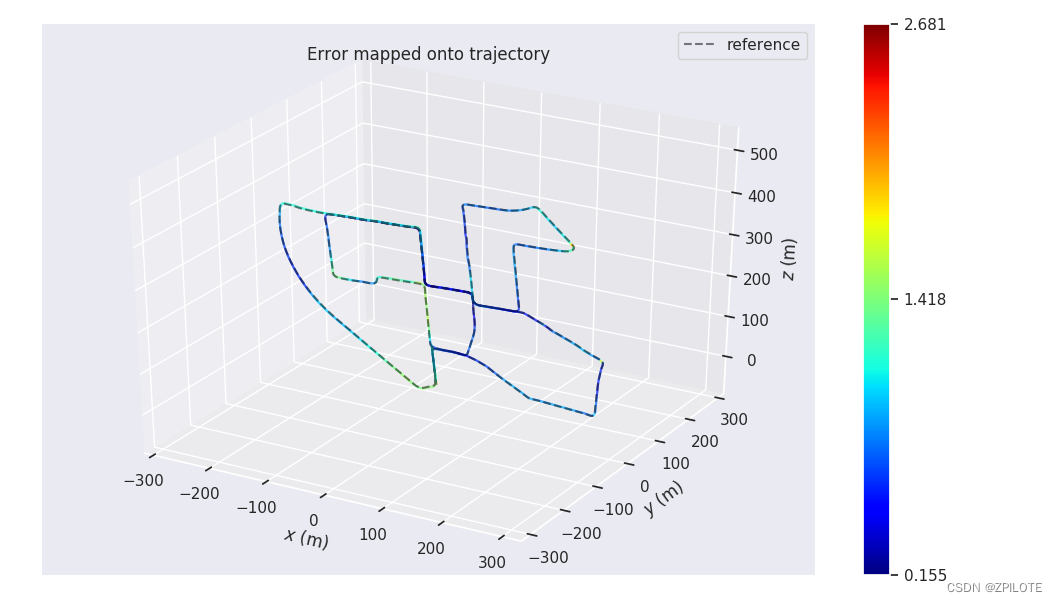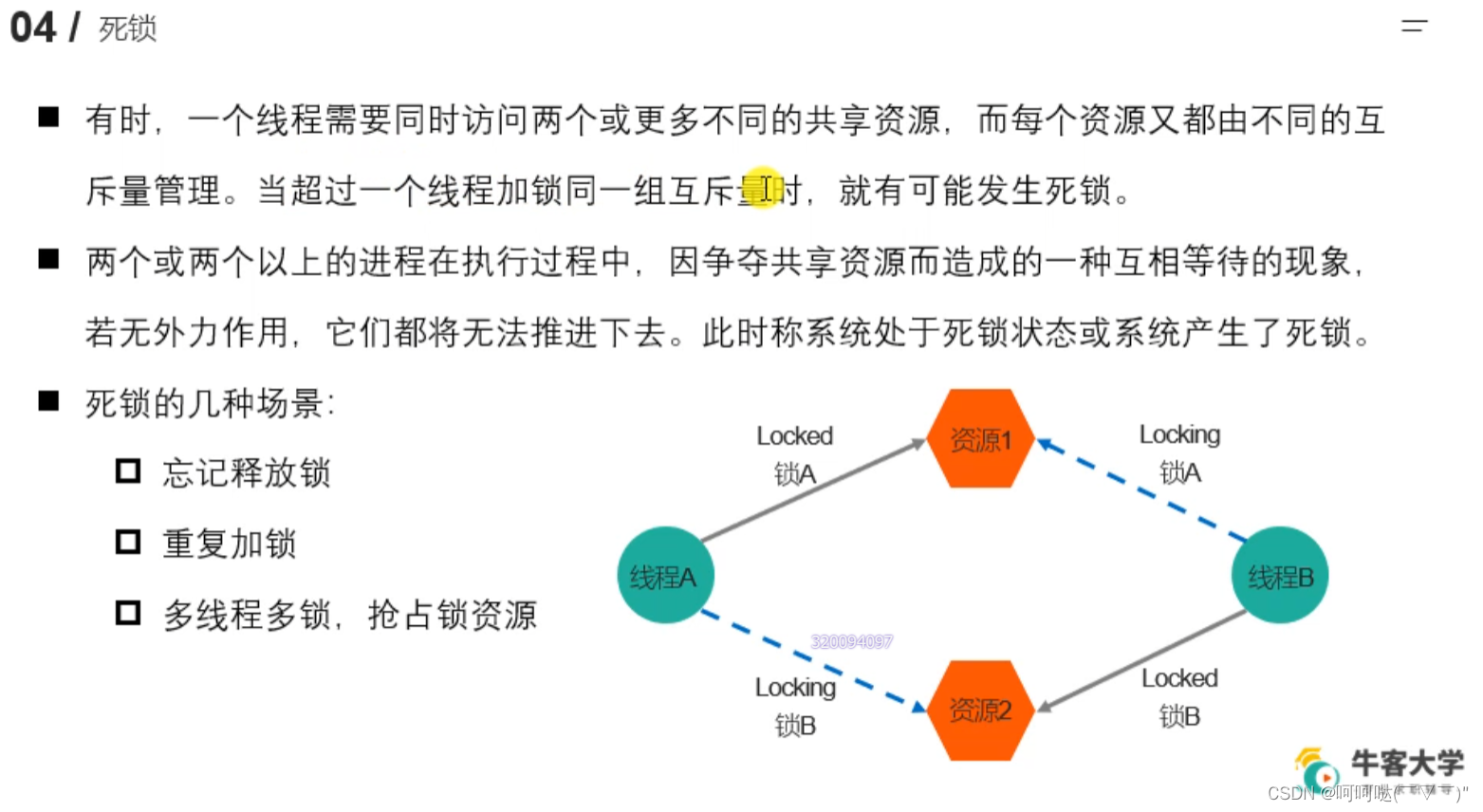
deadlock.c
#include <stdio.h>
#include <pthread.h>
#include <unistd.h>
// 全局变量,所有的线程都共享这一份资源。
int tickets = 1000;
// 创建一个互斥量
pthread_mutex_t mutex;
void * sellticket(void * arg) {
// 卖票
while(1) {
// 加锁
pthread_mutex_lock(&mutex);
pthread_mutex_lock(&mutex);
if(tickets > 0) {
usleep(6000);
printf("%ld 正在卖第 %d 张门票\n", pthread_self(), tickets);
tickets--;
}else {
// 解锁
pthread_mutex_unlock(&mutex);
break;
}
// 解锁
pthread_mutex_unlock(&mutex);
pthread_mutex_unlock(&mutex);
}
return NULL;
}
int main() {
// 初始化互斥量
pthread_mutex_init(&mutex, NULL);
// 创建3个子线程
pthread_t tid1, tid2, tid3;
pthread_create(&tid1, NULL, sellticket, NULL);
pthread_create(&tid2, NULL, sellticket, NULL);
pthread_create(&tid3, NULL, sellticket, NULL);
// 回收子线程的资源,阻塞
pthread_join(tid1, NULL);
pthread_join(tid2, NULL);
pthread_join(tid3, NULL);
pthread_exit(NULL); // 退出主线程
// 释放互斥量资源
pthread_mutex_destroy(&mutex);
return 0;
}deadlock1.c
#include <stdio.h>
#include <pthread.h>
#include <unistd.h>
// 创建2个互斥量
pthread_mutex_t mutex1, mutex2;
void * workA(void * arg) {
pthread_mutex_lock(&mutex1);
sleep(1);
pthread_mutex_lock(&mutex2);
printf("workA....\n");
pthread_mutex_unlock(&mutex2);
pthread_mutex_unlock(&mutex1);
return NULL;
}
void * workB(void * arg) {
pthread_mutex_lock(&mutex2);
sleep(1);
pthread_mutex_lock(&mutex1);
printf("workB....\n");
pthread_mutex_unlock(&mutex1);
pthread_mutex_unlock(&mutex2);
return NULL;
}
int main() {
// 初始化互斥量
pthread_mutex_init(&mutex1, NULL);
pthread_mutex_init(&mutex2, NULL);
// 创建2个子线程
pthread_t tid1, tid2;
pthread_create(&tid1, NULL, workA, NULL);
pthread_create(&tid2, NULL, workB, NULL);
// 回收子线程资源
pthread_join(tid1, NULL);
pthread_join(tid2, NULL);
// 释放互斥量资源
pthread_mutex_destroy(&mutex1);
pthread_mutex_destroy(&mutex2);
return 0;
}
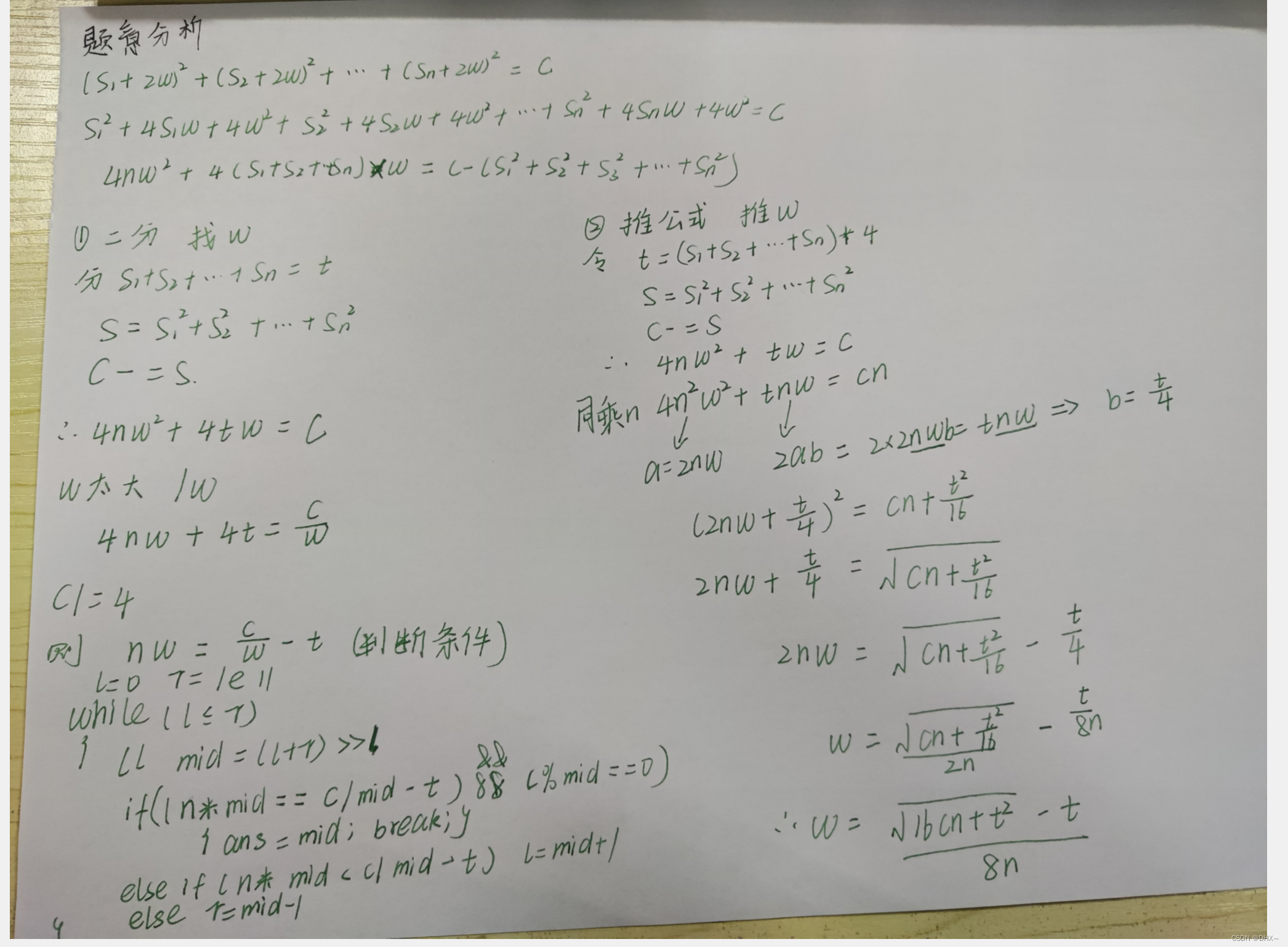





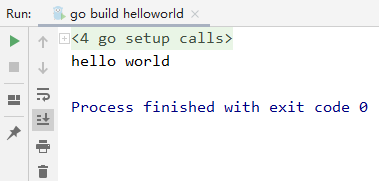
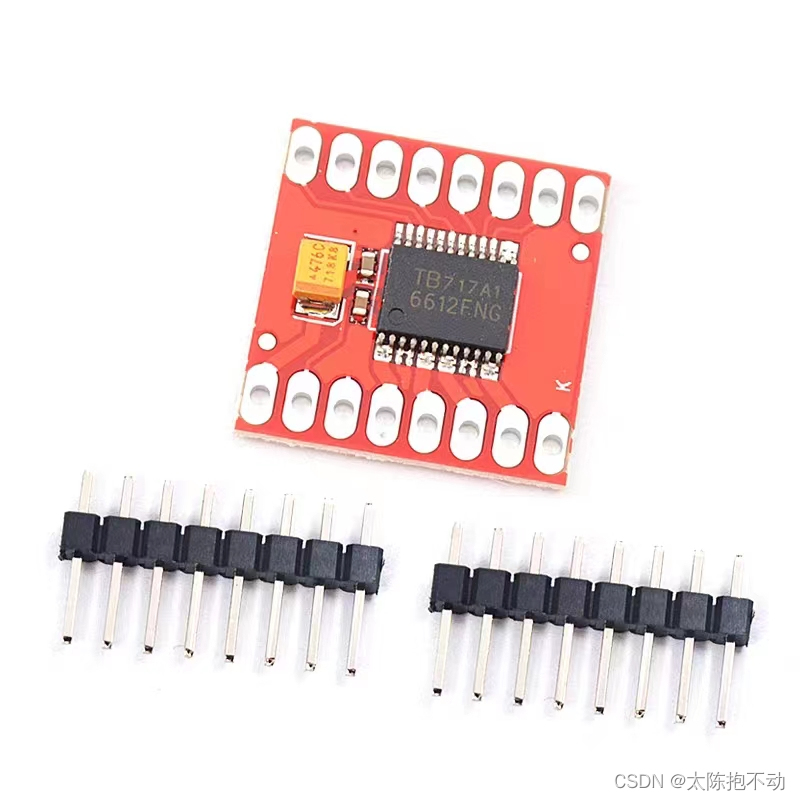


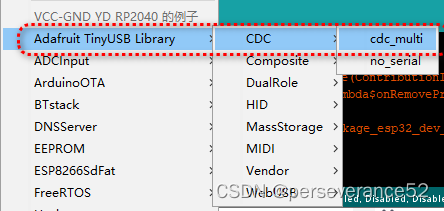
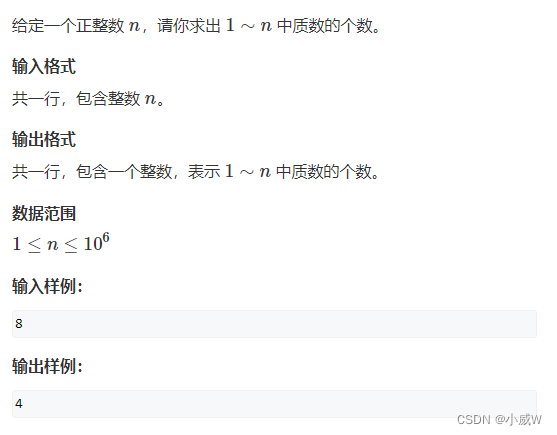
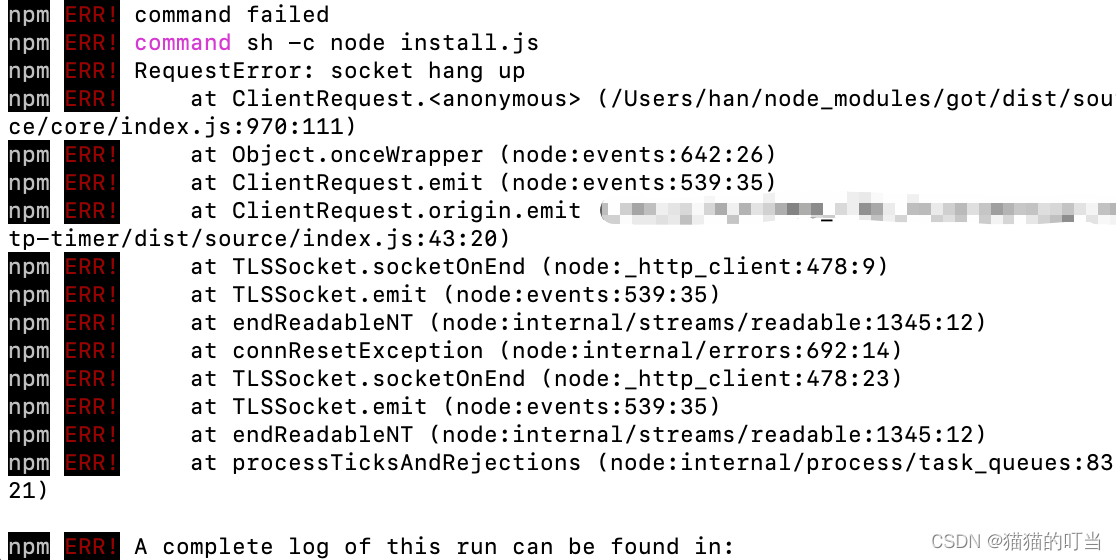
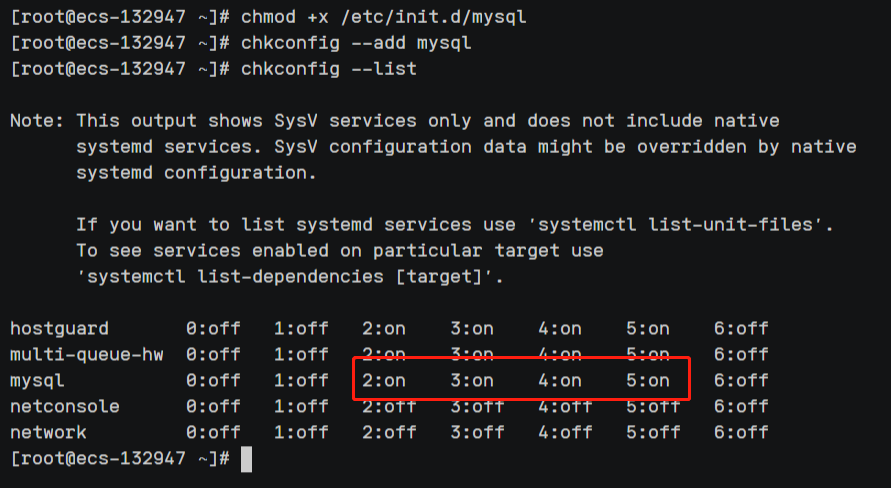
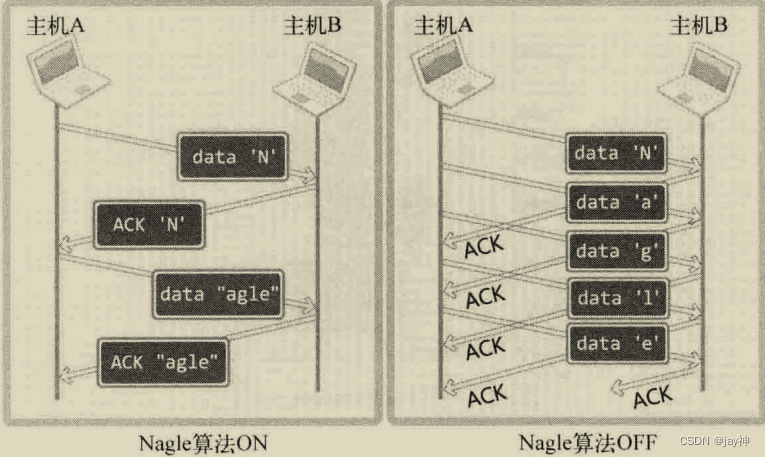
![[java安全]TemplatesImpl在Shiro550反序列化](https://img-blog.csdnimg.cn/img_convert/0f1455c0f803bfb4bc3432c5cfa9b3f3.png)

